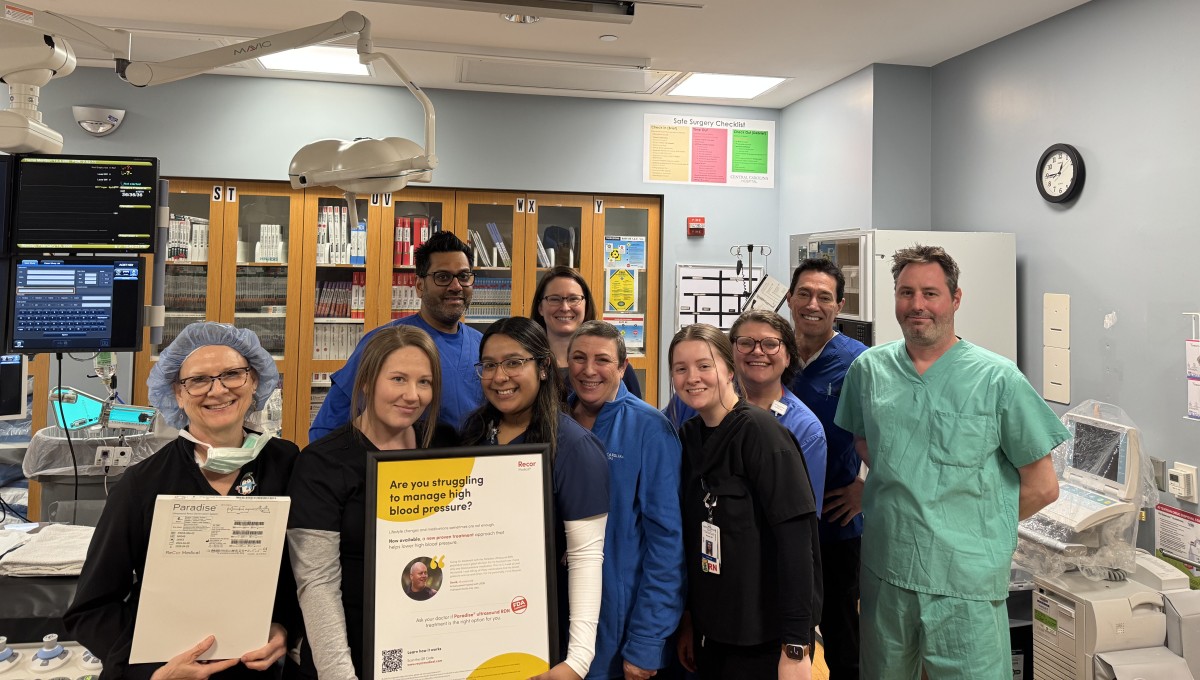CCH Performs First Renal Denervation
April 16, 2025

Central Carolina Hospital has successfully performed its first renal denervation case in its cardiac catheterization laboratory.
The procedure was performed by Rajiv Swamy, MD, interventional cardiologist and Chief of the Department of Medicine at Central Carolina Hospital, on Feb. 10, using the Paradise® Ultrasound Renal Denervation (RDN) system.
Also known as renal ablation, renal denervation is a minimally invasive, FDA-approved procedure to treat high blood pressure that hasn't improved with other treatments. It was first approved by the FDA as a procedure to lower blood pressure in November 2023.
Ultrasound-based renal denervation has been shown to be safe and effective across three randomized controlled clinical trials. It is designed to achieve clinically significant reductions in blood pressure, reducing the risk of stroke, kidney disease and heart failure.
In the U.S., more than 54 million adults are being treated for high blood pressure, and many remain above the normal blood pressure range of 120/80 despite lifestyle changes and various classes of anti-hypertensive medications.
Because there are no physical symptoms of high blood pressure, most patients with hypertension do not realize they have it. The lack of symptoms and long-term health risks have led to hypertension being referred to as a “silent killer.”
Traditional treatment options for high blood pressure include lifestyle changes and medications. Medications are often poorly tolerated by patients due to side effects, and daily medication regimens can be burdensome for many patients. Side effects often lead to poor adherence, with patients missing doses or not taking medications at all.
Hypertensive patients who remain “uncontrolled,” or outside of the normal blood pressure range, are at increased risk for cardiovascular disease – including heart attack and heart failure, stroke, kidney disease and cognitive issues. For many people with high blood pressure, the nerves leading to and from the kidneys have become overactive, contributing to high blood pressure. Clinical research has shown that denervation, or the interruption of the signals along these nerves, can effectively reduce blood pressure.
“For many patients, medications just aren’t enough,” Dr. Swamy said. “The 24-hour ‘always-on’ effect offered by renal denervation enables better blood pressure control and reduced risk of long-term complications. For many people, this treatment can significantly reduce their high blood pressure medication dosage, or even allow them to stop using medication altogether.”
In the procedure, an interventional cardiologist uses a catheter to send ultrasound or radiofrequency (heat) energy to the renal arteries, which are the blood vessels that supply blood to the kidneys. This energy destroys (ablates) the renal nerves without damaging the arteries. The reduced nerve activity causes the resulting drop in blood pressure.
The procedure is minimally invasive and may be performed in an outpatient setting, allowing most patients to return home the same day.
Your primary care provider may recommend renal denervation if you have resistant hypertension. To be a candidate for renal denervation, you also need to have healthy blood vessels.
To learn more, visit www.centralcarolinaphysicians.com or call Central Carolina Cardiology at 919.774.6262.
